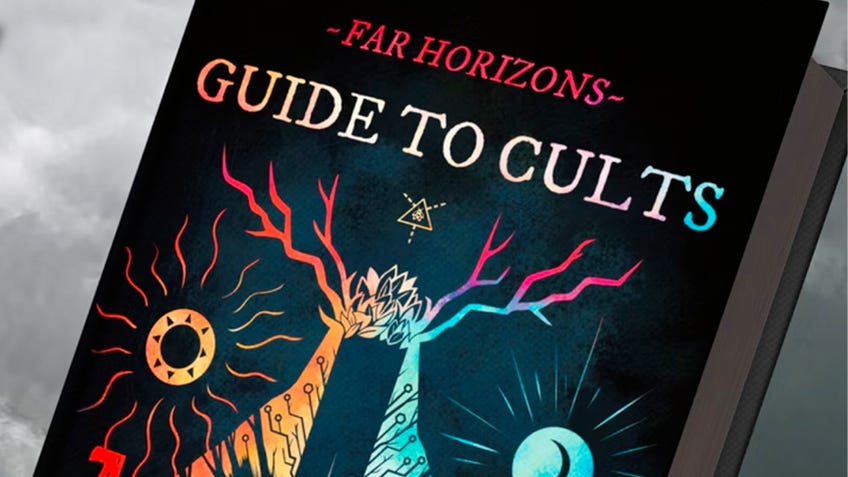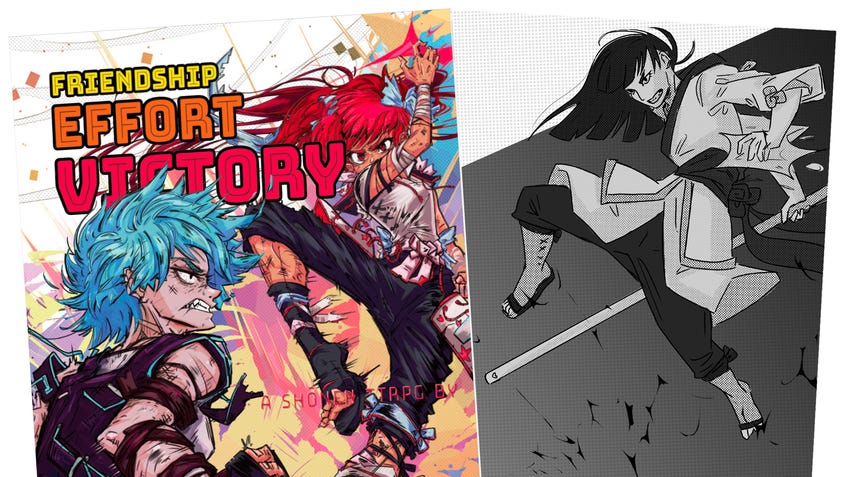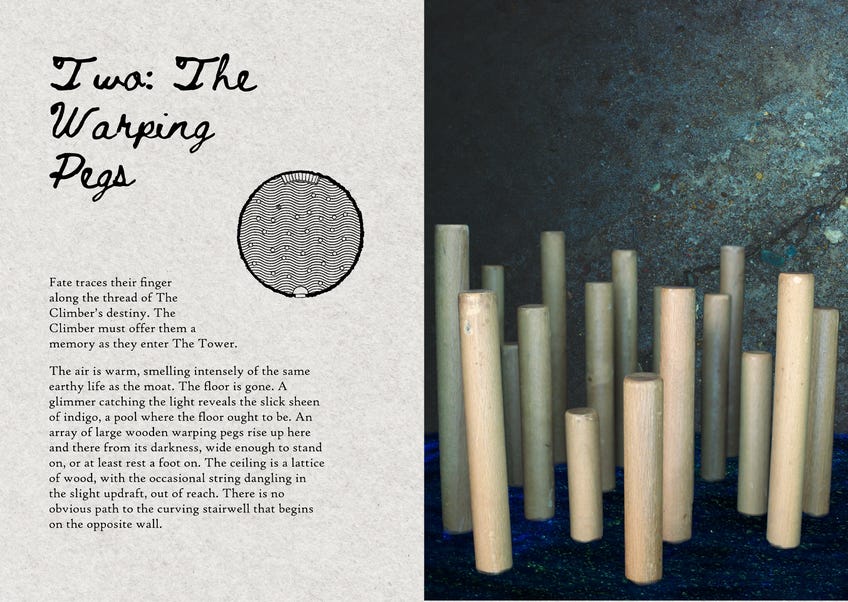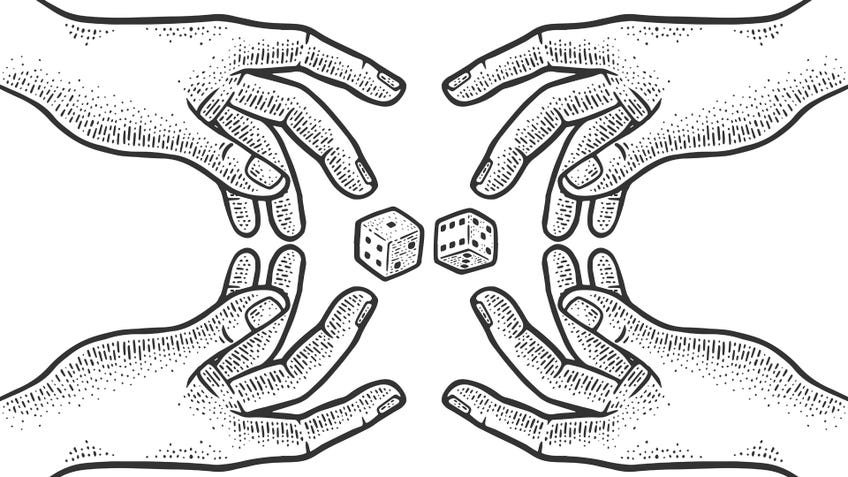Rolling Together: Indie RPG creators joining forces to change the industry for good
“This kind of collective endeavour really helps push people into making something better.”
“TTRPG freelance writers have typically been treated incredibly poorly,” says designer, organiser and podcast host Marx Shepherd. “They’re paid very badly, often not paid, often had their work cut out at the last minute, meaning that contractually, they don't need to get paid. And then they have this body of work which they've done, but nothing to show for it. To me, that feels extremely unfair.”
Shepherd is one of 50 members of Far Horizons Co-op, an international workers cooperative of fellow tabletop RPG designers, writers, artists and creatives looking to model a more equitable and sustainable way of publishing in the industry. In the past four years of its existence, Far Horizons (originally called San Jenaro) has published nine anthologies, two standalone games, two system-agnostic guides (including the recent crowdfunding campaign for its Guide to Cults), all the while prioritising a democratic way of organising and paying people for their labour.
Far Horizons is a part of a growing labour movement within the tabletop roleplaying industry, the media’s coverage of which has so far been limited to the successful unionisation efforts at Pathfinder publisher Paizo. However, the conditions its writers, artists and creatives are organising against are not just limited to one company, and the solutions to those conditions are similarly manifold. Though United Paizo Workers is the first of its kind, more and more creatives like Shepherd are organising around labour issues through cooperatives.

Typically cooperatives are most often founded in times of economic turmoil and precarity because of their emphasis on fulfilling needs over collecting profits. In fact, during the pandemic, the numbers of cooperatives founded in both the UK and US increased, and worldwide the trend has been increasing since the financial crisis of 2007/2008.
We're all very leftist, and it's quite an overwhelmingly majority Queer space. That brings a lot of people together who have a similar set of ideas as to what they want to see.
The role of an union is to represent the interests of workers in the workplace, usually in relation to an external employer, while a co-op - and specifically a worker co-op - is a business that's owned democratically by its employees. Though they don’t replace the need for labour unions, the incentives that motivate workers to start cooperatives come from the same truth: there’s strength in numbers. Whether it’s pooling resources, democratic ownership and control, or the ability to maintain ownership over the work that they produce, there are a multitude of reasons why cooperativism is appealing to creators in the indie TTRPG realm.
“We're all very leftist, and it's quite an overwhelmingly majority Queer space,” Shepherd says. “That brings a lot of people together who have a similar set of ideas as to what they want to see, which is about inclusivity and about diversity of voices.”
Far Horizons organises through a work Discord, where they manage everything from their ongoing anthologies, to new projects put forward by members, to the everyday work of their treasury and social media. The rules are straightforward: one person, one vote. Whether it’s in regard to approving fundamentals like a co-op value, or a game proposal, or whether the co-op should participate in a certain charity bundle, every decision is made as a group.
Members are free to pitch game projects for consideration, which are discussed in full for 24 hours on the Discord before becoming an official proposal that details how much work is required and the nature of it (art, editing, sensitivity reading, etc). The person who puts forward a successful proposal becomes project manager, drawing up the contract for members who’ve signed on to be involved with their labour, each getting a “share” of the project commensurate with the work involved.
“From the [contributors] I've talked to, they said they made more money on the project than they have on other projects they've worked on in the industry, just because of the fact it's a profit-sharing agreement,” says Kamala Kara, whose shonen battle manga game Friendship, Effort, Victory! was published by Far Horizons earlier this year.

Far Horizons believes this model both elevates creators who would otherwise go unpublished by traditional means, offers more control to the creators themselves over everything from retaining copyright to the overall design, and also elevates the final finished product itself. “The difference in the co-op is that it actually allowed me to publish a book, because publishing is not a decision of a management group - it's an open vote,” explains Kara.
Before pitching the game to the co-op, Kara had previously self-published some of her work, and had contributed to a couple editions of Far Horizons’ anthologies, but didn’t have other credits to her name. “It’s actually pretty hard to get a publisher in this industry, end of sentence,” she says. “That's not really a thing, as much as some people would think, unless you're working with someone else's intellectual property.”
It’s actually pretty hard to get a publisher in this industry, end of sentence.
Friendship, Effort, Victory! was already written and playtested when Kara brought it to the co-op, but credits the contributions of her fellow cooperators for making the project a success. “I actually think that has a lot to do with why the book was successful: the editing, the really good layout, the really good art. Honestly, all the team together really made this work,” she says.
“That kind of collective endeavour really helps push people into making something better,” Shepherd adds. “And make something that maybe they didn't think that they would [do otherwise].”

There are so many barriers preventing first time creators, and especially marginalised creators, from accessing the resources and knowledge necessary to get a foot in the industry, which is why Noora Rose of publisher and distributor Monkey’s Paw Games co-founded the Chapbook Co-op with fellow distributors Loot The Room, Spear Witch and ratti incantati.
The cooperative model is dynamic enough that distributors can also use it to pool resources and, in Chapbook’s case, help uplift marginalised first-time creators who might have a good idea but are without the resources or knowledge to take it anywhere. “We came to the idea of a co-op because all of us are individually broke,” Rose laughs. “Together, we are slightly less broke. And so we can combine our purchasing power a little bit to help fund people's creativity.”
Beyond funding the printing of a tabletop RPG (its first, Gem Room Games’ The Weaver’s Observatory, will hit stores later this summer), the purpose of the co-op is driven by a desire to counter the fleeting and attention-driven rhythms of creators relying upon crowdfunding platforms like Kickstarter. “We really wanted to try and build something that would be more sustainable than the FOMO-fueled boom bust of crowdfunding and of constantly having to make new releases and hype it up,” she says.

While on its surface Kickstarter solves a lot of the problems for creators like capital, advertising, audience and reach, Rose says its prevalence in the industry erodes opportunities to foster community and build lasting infrastructure. Referring to the controversy spurred last year when the platform announced their intention to dabble in the blockchain, she mentions how that moment really drew attention to how reliant the TTRPG industry is on that one platform.
“There was a backlash from people saying, ‘We're not gonna support Kickstarter anymore,’” she recalls. “And then there was an even more vocal backlash who said, ‘Hold up. My entire business plan is based on Kickstarter.’ That's not a business model.”
We really wanted to try and build something that would be more sustainable than the FOMO-fueled boom bust of crowdfunding.
For Rose, platforms like Kickstarter extract value from RPG creators while doing nothing to reinvest that value back to those responsible for its success, thereby solidifying the very barriers that necessitate crowdfunding. It might take more work to build something from scratch but, along with Far Horizons, Chapbook is trying to prove that smart interventions like co-ops can be small but powerful tools for change, and are incumbent on established creators to develop if there's to be any true sense of community in the future.
“People talk about the ‘TTRPG community’ all the time and it’s not a community, it's an industry. You build communities within the industry, you have to foster that.”

